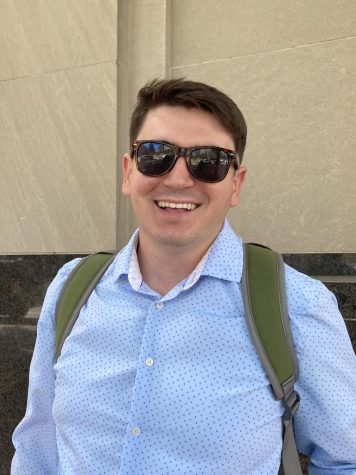Many Suffolk University students are saying the transition to in-person learning this semester has taken a toll on their mental health and ability to be involved on campus.
Throughout the COVID-19 pandemic, students have continued to suffer from increased stress, depression and loneliness. In a report published by Boston University, 83% of students said their mental health was negatively impacted by the pandemic.
Countless students returned to campus with the same initial thought: this semester was a fresh start, and one with less COVID-19 restrictions. However, some have found a hybrid world of restrictions and in-person activities to be mentally and emotionally exhausting.
Stephanie Kendall, director of Suffolk Counseling, Health and Wellness, said that this mental and emotional depletion can affect students in a variety of areas, and in a multitude of ways.
“When we feel depleted and exhausted, we don’t have enough energy to take on challenges, and academics are challenging,” said Kendall. “I think the same thing applies to student activities and being involved on campus, because that too takes emotional energy.”
President of Suffolk’s show choir Rampage and junior psychology major Morgan Mitcheson said student motivation and involvement has plummeted throughout the semester.
“Everyone is always really happy to be there, but we are definitely getting burnt out quickly. Attendance has been all over the place for rehearsals,” said Mitcheson. “Regaining our old routine for everyone has been really hard, I think we all lost a lot of mental stamina during the pandemic.”
Olive Lofblad, a sophomore law major and vice president of Suffolk’s Healthy Minds Club, said the return to in-person has left many students feeling overwhelmed, overworked and unprepared to ask for help.
“Going back to in-person classes and having campus back at full capacity has been great, but it definitely has been overwhelming for a lot of people and I think that can be seen in the fluctuation of involvement in the club this semester,” said Lofblad.
Kendall said she noticed a rise in Suffolk students’ anxiety levels this semester.
“A lot of [the anxiety] is normative for college, but a lot of it is also because things have changed in the world,” said Kendall. She added that students are faced with additional pressures of when it’s appropriate to be in crowds or attend events, as well as the stress of the pandemic’s uncertainty.
“It feels like the ground that used to feel so secure and predictable, is no longer secure and predictable, and that’s going to make everybody struggle more,” said Kendall.
Kendall said the most prevalent mental health concerns among students involve depression, anxiety and relationships, although these concepts affect everyone differently.
Mitcheson added that the adjustment to in-person campus did not only impact students’ academics, but their social lives as well.
“Everyone has had a really hard time adjusting to in-person, from my view of the club. My personal motto for rehearsal and what I hope for others to do as well is ‘leave your stuff at the door,’ but it’s hard to do that when you’re completely burnt out,” said Mitcheson.
According to a study from The Ohio State University, the percentage of students who reported feeling burnout increased from 40% in August 2020 to 71% in April 2021.
Burnout can be defined as a response to prolonged stress, resulting in increased overwhelming exhaustion, feelings of cynicism and detachment.
“I think everyone’s mental health on some level has deteriorated due to this semester and the pandemic. Switching back to even having the physical energy to come on campus has been an uphill battle for us,” said Mitcheson.
Lofblad said the pandemic and students’ mental health struggles have made it obvious that society must do more to support its young people in times of crisis.
“It’s great that Suffolk has resources to help with mental health for students like our club or the CHW, but that doesn’t change the reality that many of us are experiencing so much anxiety, burnout, stress, depression and isolation as we’ve all endured the constant changes and fears that Covid has brought,” said Lofblad.
According to the American Psychological Association, Gen Z adults ages 18 to 23 reported significantly higher levels of stress compared to other generations.
“The pandemic has definitely affected my own mental health and increased a lot of my anxiety. I’m lucky to have a great support system, but COVID has had a serious impact on the way I’ve lived my life and changed the way we need to approach mental health as a society,” said Lofblad.
Kendall encouraged students to utilize CHW resources such as counseling and the Wellness Resource Room.
CHW offers urgent appointments from 11 a.m. to 5 p.m. every weekday, and students can make an appointment by calling the office at 617-573-8226. CHW is located on the 5th floor of 73 Tremont.
Follow Shea on Twitter @ShealaghS.





















